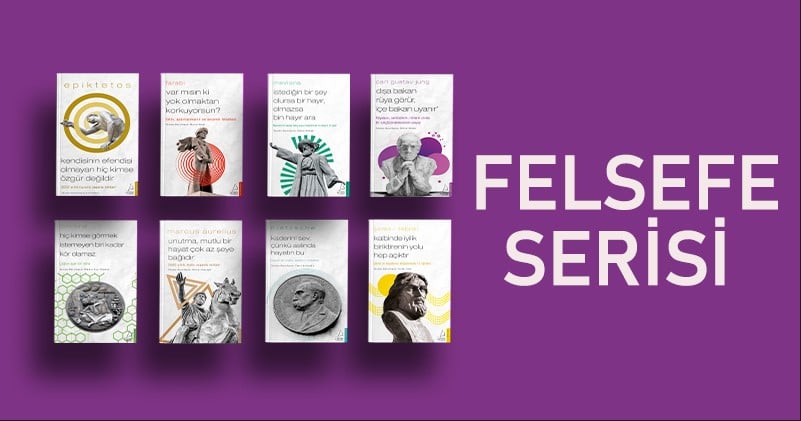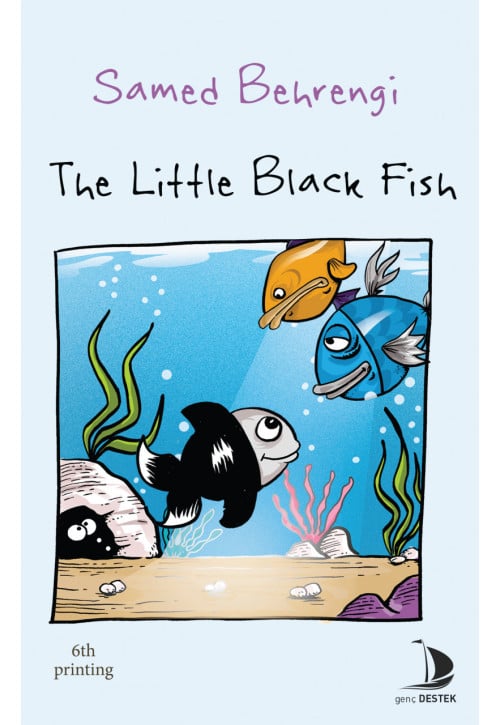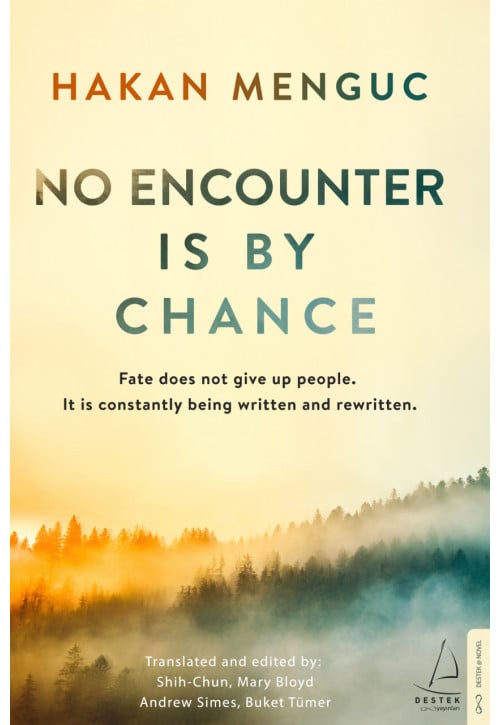 Destek Yayınları
Destek Yayınları
No Encounter Is By Chance
Fate does not give up on people. We are the decision-makers, the ones who shape our own fate. As one looks back, they may notice experiences where they do things they thought they would never do, put up with things they said they would never tolerate, or even fall in love with someone they thought they would never love. We might have been in situations where we thought we could not leave, but instead were able to walk away from; we might have days we felt like dying but still lived through. With every challenge overcome, we come closer to understanding our inner self. * * * A sufi went on a seven-day long journey with a young girl in order to help her find her life purpose. They did not bring anything but their faith in God with them. In this journey, they met amazing encounters and extrao...
 Destek Yayınları
Destek Yayınları
Nimm Dir Nicht Alles So Zu Herzen Oh Seele
"Die Kunst, die Herzen von Einflüsterungen zu reinigen und den Geist zum Schweigen zu bringen" Egal wie sehr der Mensch wie ein begrenztes Geschöpf scheinen mag, gleicht er einer endlosen Quelle, gar einer unglaublichen Schlucht. Mit seinem begrenzten Körper erlebt er eine unbegrenzte Welt und schlägt sich sein Leben lang mit Einflüsterungen herum, die ihm diese Welt unerträglich machen. Für jene, die nicht von ihrer Seele erzogen wurden, führen die Einflüsterungen, die ihnen das Leben zur Hölle machen, zu einer Reihe von physischen und psychischen Problemen und lassen die Erfahrungen, die sie auf diesem Weg erleben, wie unbedeutende Zufälle erscheinen. Jedoch ist es möglich, diese Einflüsterungen loszuwerden und zwar mit der Führung des Korans, der herabgesandt wurde, um dem Menschen Heil...
 Destek Yayınları
Destek Yayınları
Vertraue Ohne Zweifel Auf Allah-2
WAS DIR ALLAH GIBT, HÄNGT VON DEINER ABSICHT AB Allah hat den Schlüssel aller Schätze in Deine Hand gelegt. Du kannst deren Türe mit Deinem Gebet öffnen, wann immer Du willst. Wenn Du möchtest, kannst Du die Türen des Himmels öffnen und die lebenschenkende Regenfälle auf die Erde herunterlassen. Nur nicht gleich die Hoffnung aufgeben, wenn Du siehst, dass Deine Wünsche nicht sofort in Erfüllung gehen. Allah hält die Lösung schon bereit, bevor das Problem entsteht. Manchmal entfernt das Leben all Deine Träume von Dir... Das bedeutet, dass Allah (cc) Deine Stimme hören wollte. Unverzüglich machst Du Dein Herz und Deine Hände auf und suchst Zuflucht in Halik (dem Schöpfer), Der Dich aus dem Nichts erschaffen hat. Was für ein schönes Treffen… Es ist der Moment, in dem das Herz die wahre Liebe ...
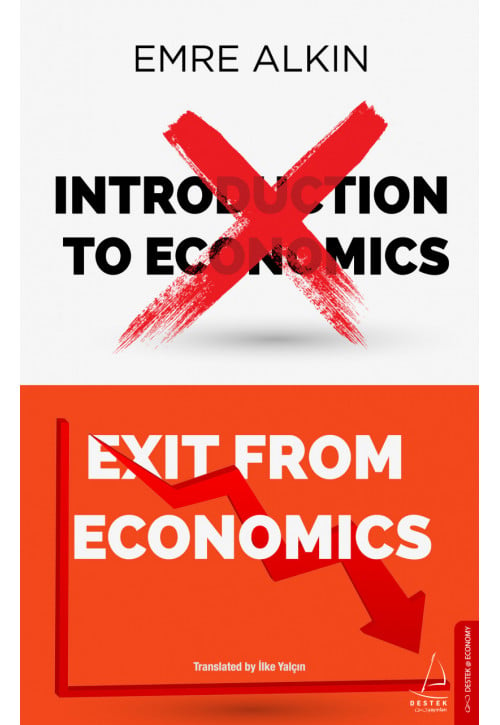 Destek Yayınları
Destek Yayınları
Exit From Economics
"Introduction to Economics" is the first course that introduces you to the fundamentals of economic reasoning. It involves rationality, mathematics and experience. Today, the notion no longer seems to be convincing. Generally, economics revolves around a central concept called homo economicus which refers to a prototype of a rational, economic human being. In other words, it describes an individual who acts independently and who tries to match limited resources to unlimited needs. Nonetheless, this rational being does not exist anymore. We are living in a world full of people who spend more than they earn, confuse needs with desires, "sacrifice their future happiness for familiar unhappiness". How did we become like this? When and why did the economics lose this rational human being? What ...
 Destek Yayınları
Destek Yayınları
Keine Begegnung İn Unserem Leben İst Ein Zufall
Das Schicksal, es lässt von niemandem ab. Es wird jeden Augenblick neu geschrieben. Manchmal geschehen solche Dinge, dass du Sachen tust, die du dir niemals hättest vorstellen können. Dass du Dinge erträgst, die du dir niemals hättest ausmalen können. Dass du liebst, was du niemals gedacht hättest lieben zu können. Dass du einfach gehst, obwohl du dir das niemals hättest denken können. Und, dass du sagst, dass du gestorben bist, aber trotzdem lebst. * * * Ein Sufi, der sich selbst finden will und ein junges Mädchen, das versucht, den Lebenssinn zu finden, begeben sich auf einen langen Weg, ohne zu wissen, was auf sie treffen könnte. Sie haben nichts, dem sie vertrauen können, außer ihrem Schicksal. Die jungen Zwei begeben sich auf eine siebentägige Reise, ohne auch nur Geld, eine Kreditkar...
 Destek Yayınları
Destek Yayınları
Vertraue Ohne Zweıfel Auf Allah
ALLAH weiß über alles Bescheid. Glaubt ja nicht, dass Er unachtsam dessen ist, was ihr an Ungerechtigkeit zu verspüren bekommt. Denn ALLAH ist zu seinen Geschöpfen barmherziger, als eine Mutter zu ihrem Kind. Ohne die Gegenleistung deines Gebetes zu verfolgen: Vertraue Ihm all deine Sorgen und Angelegenheiten an und hinterfrage Seinen Willen und Seine Entscheidungen nicht! Denn ein Diener kontrolliert seinen Schöpfer nicht! Und gewiss, zweifelt er auch nicht an Ihm! Du kannst dir sicher sein: Wenn du dich ALLAH mit vollkommener Ergebenheit näherst, kommt Er dir mit Gnade und Segen entgegen. Und genau das, wirst du dann tief in deinem Herzen zu verspüren bekommen. Du hast so viele Menschen in deiner Umgebung, die ihr wahres Ich verstecken und hinter einer Maske leben. Diese "falschen Gesich...
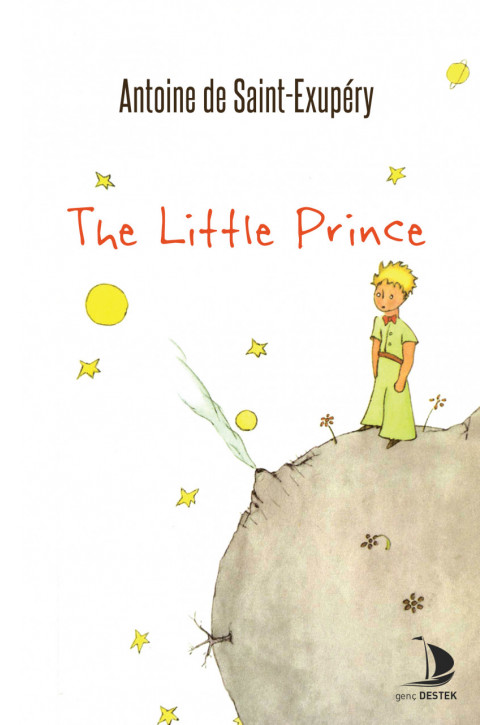 Genç Destek Yayınları
Genç Destek Yayınları
The Little Prince
"So when you look at the sky at night, it will be as if all the stars were laughing; as though in one of the stars I live and I will be laughing…You will have stars that know how to laugh!" And he laughed again. "And when your sorrow is comforted (with time all sorrows pass) you will be glad that you have known me. You will always be my friend. You will want to laugh with me. And you will open your window, and your friends will be surprised to see you laughing as you look up at the sky! Then you will say to them, ‘Yes, the stars always make me laugh!’ And they will think you are crazy. It will be my little joke that I will have played on you…"
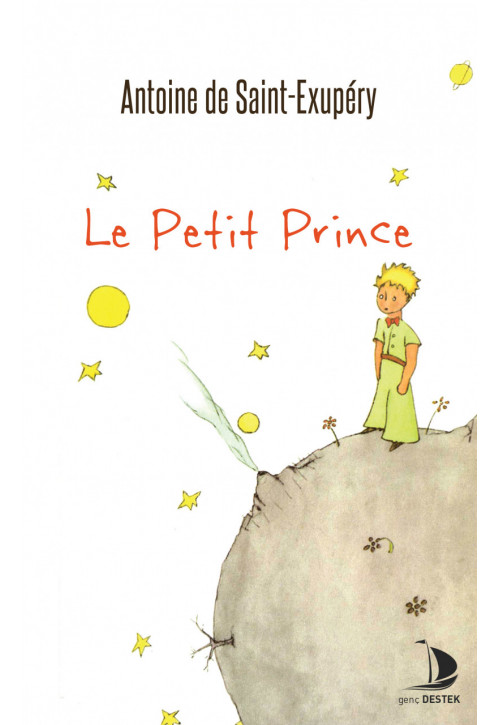 Genç Destek Yayınları
Genç Destek Yayınları
Le Petıt Prınce
"Alors quand la nuit tu regardes le ciel, il sera comme si toutes les étoiles riaient… Pourtant dans l'une des étoiles je vis et je rirai. Tu auras des étoiles qui savent comment rire!" Il ria encore. "Et quand ta tristesse est consolée (avec le temps toutes les tristesses passent), tu sera ravi de m'avoir connu. Tu seras toujours mon ami. Tu voudras rire avec moi. Tu ouvriras ta fenêtre, et tes amis seront surpris de te voir rire pendant que tu regardes le ciel! Ensuite tu leur dira ‘oui, les étoiles me font toujours rire!’. Et ils penseront que tu es fou. Ca sera ma petite blague que j'ai joué sur toi…"




